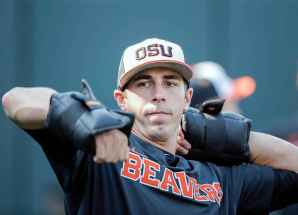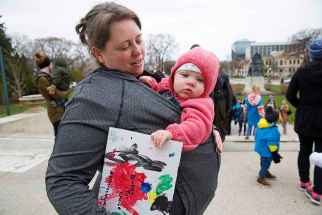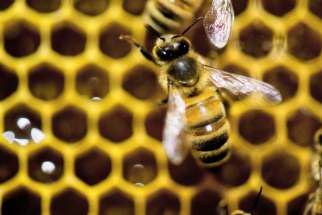Goldeyes walk away from PR nightmare, even one with a mid-90s fastball
Read this article for free:
or
Already have an account? Log in here »
To continue reading, please subscribe:
Monthly Digital Subscription
$0 for the first 4 weeks*
- Enjoy unlimited reading on winnipegfreepress.com
- Read the E-Edition, our digital replica newspaper
- Access News Break, our award-winning app
- Play interactive puzzles
*No charge for 4 weeks then price increases to the regular rate of $19.00 plus GST every four weeks. Offer available to new and qualified returning subscribers only. Cancel any time.
Monthly Digital Subscription
$4.75/week*
- Enjoy unlimited reading on winnipegfreepress.com
- Read the E-Edition, our digital replica newspaper
- Access News Break, our award-winning app
- Play interactive puzzles
*Billed as $19 plus GST every four weeks. Cancel any time.
To continue reading, please subscribe:
Add Free Press access to your Brandon Sun subscription for only an additional
$1 for the first 4 weeks*
*Your next subscription payment will increase by $1.00 and you will be charged $16.99 plus GST for four weeks. After four weeks, your payment will increase to $23.99 plus GST every four weeks.
Read unlimited articles for free today:
or
Already have an account? Log in here »
Hey there, time traveller!
This article was published 06/05/2019 (2412 days ago), so information in it may no longer be current.
The Winnipeg Goldeyes found themselves facing a major moral and ethical dilemma during the off-season. One in which the goal of fielding the most competitive team possible was directly at odds with concerns about potential backlash from fans, sponsors and the community at large.
It certainly wasn’t an easy decision. But was it the correct one?
Before you weigh in, some background is required as this story is made public for the first time. And for those who may not be baseball fans, this is about so much more than balls and strikes. It’s about right and wrong, about crime and punishment, about second chances and lifelong consequences.
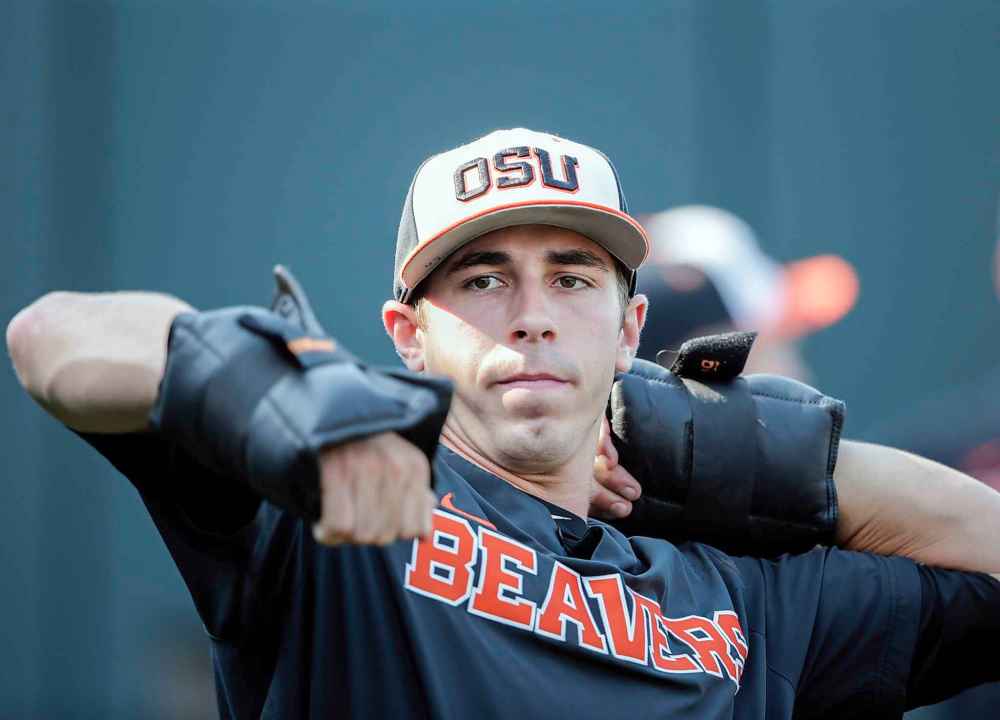
Let me tell you about Luke Heimlich, who could have been pitching this week down at Shaw Park as the Goldeyes get ready for the start of the 2019 season.
Now 23, Heimlich was an ace left-handed hurler who was named the 2018 Collegiate Pitcher of the Year while playing for the Oregon State Beavers, including an incredible 27-4 record over his last two seasons with a sparkling 1.89 ERA. He has all the tools to be a successful major-leaguer, including a fastball that can touch the mid-90s on the radar gun.
There was speculation Heimlich would be one of the top overall picks in last year’s MLB amateur draft. Only he didn’t get taken in Round 1. Or Round 2. Or even the 40th and final round.
What would possibly possess all 30 MLB teams to take a pass on such talent? In a word, fear.
Heimlich isn’t just a heck of a baseball player. He’s also a convicted sex offender.
Back in 2012 at the age of 16, Heimlich was arrested and charged with molesting his niece one year earlier, when she was just six and he was 15. The little girl told family members and authorities, that Heimlich had fondled her on at least two occasions while they were alone at his home near Seattle, ignoring her cries for him to stop.
The case never went to trial. Heimlich, represented by a public defender, entered a guilty plea later that year to one of two charges as part of a deal. The other was dropped. He was given two years of probation, had to write a letter of apology to the victim, took court-ordered counselling and was required to register as a Level 1 sex offender in the State of Washington for a five-year period. That’s the lowest designation, used for people deemed low-risks and unlikely to reoffend.
As a juvenile, all of this was supposed to be sealed. But his background became public in 2017 when the Oregonian newspaper in Portland was tipped off that the star college pitcher in town was cited by local police after failing to notify probation officials he was now living in Oregon.
Since then, his record was expunged five years from the day of his guilty plea, as he had been promised. There are no outstanding charges or allegations, and he fulfilled all requirements of his sentence. But the issue hasn’t gone away and, in fact, has only gotten more controversial as it made international headlines.
Heimlich spoke with the New York Times last year, proclaiming his innocence. “Nothing ever happened,” he said.
He claimed he pleaded guilty on the advice of his public defender lawyer and parents — both to spare everyone the trauma of a trial, but also given the deal that was in place. He called it a “delicate family situation.”
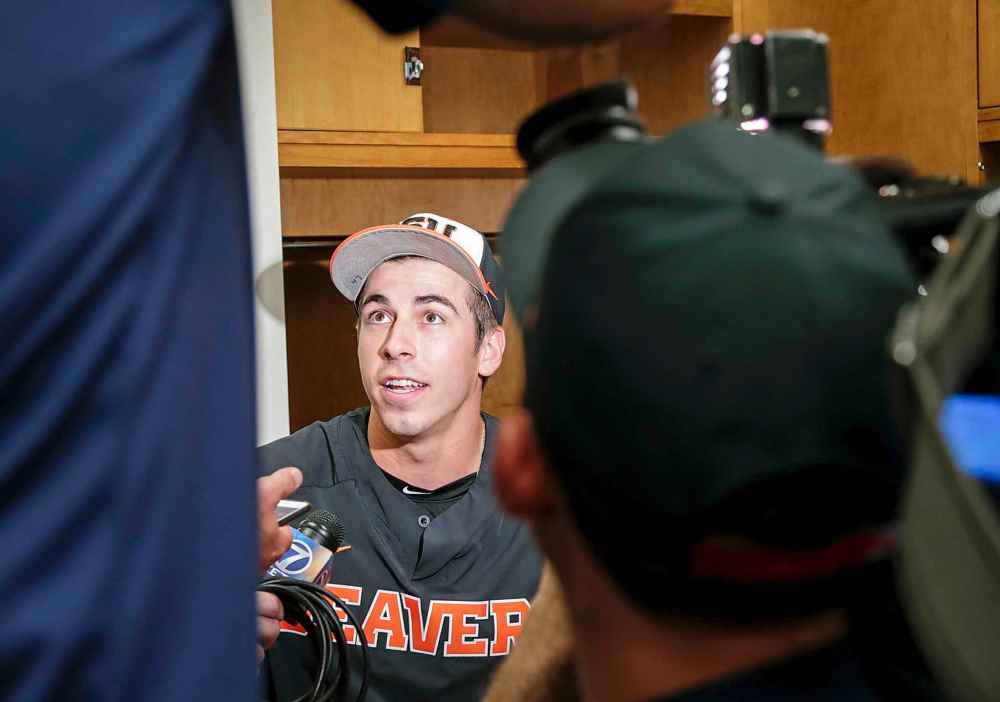
The mother of the child also spoke up, saying she believes Heimlich is guilty. “There is no way he didn’t do it,” she told the Times. “I don’t think he is a terrible person. I think he did a terrible thing,” she added.
Last summer, a pro team in Taiwan tried to ink Heimlich to a contract, only to have the Chinese Professional Baseball League quickly intervene and nullify it on the grounds it would hurt their image. Swing and a miss.
And that’s where we bring you back to the Goldeyes. Both owner Sam Katz and manager Rick Forney have confirmed the local club was in serious talks with Heimlich and his agent earlier this year, and the pitcher was ready and willing to bring his talents north of the border.
There’s little doubt Heimlich would have been a success on the field. He likely would have torn up the American Association competition while helping the Goldeyes — champions in 2016 and 2017 before having a franchise-worst season in 2018 — get back to the promised land.
But Katz, Forney and company ultimately took a pass.
“There’s no question Luke would have been a game-changer in our league. He probably would have been one of the premier pitchers in the league,” Katz told the Free Press Monday.
“But then, on doing some research and finding out a little more, the decision to me was obvious. We just couldn’t sign him based on everything that had been going on. It just didn’t feel right. You’ve got to do what you morally believe is the right thing to do.”
I have no doubt this had the potential to backfire on the Goldeyes had they welcomed him to the fold. There may have been petitions, protests and boycotts, not to mention howls on social media. It could have got ugly, especially for a team that counts on widespread community support in order to continue to be successful.
It’s worth pointing out there are many players in the American Association who have criminal records as adults, which often makes getting across the border into Winnipeg, the league’s only Canadian franchise, difficult. Some have obtained waivers, while others are left behind. But I suspect none of them involve child sexual abuse.
It’s also notable that the victim’s mother, who is divorced from one of Heimlich’s older brothers, has been adamant he shouldn’t be allowed to pursue a professional baseball career, telling the Times “any accomplishment he makes will shine a light on (the victim).”
And that’s really what this boils down to now. Even if he’s guilty of the horrendous crime he admitted to as a teenager, should Heimlich be allowed to pursue his chosen career, with his unique talents? Keep in mind he’s vying to be a baseball player, not a daycare attendant or gym teacher. If not baseball, what kind of job would society be comfortable with Heimlich pursuing?

Does the fact there appears to be some grey area here change anything? In my nearly two decades of covering crime and justice for this newspaper, I saw regular examples where people would take deals on the table rather than risk going to trial, even if there was some doubt about their guilt. Throw in the fact he was a youth, with all the family pressures involved here, and it isn’t exactly black and white.
It’s been said time heals all wounds, but in this case, does it really? Is there an acceptable amount of time that can pass before Heimlich can get back into the game? Or should he be blacklisted forever?
MLB, Japan and Winnipeg may have all balked, but Heimlich has recently found at least a temporary home with a team in Mexico. Tecolotes de los Dos Laredos signed him earlier this spring after the Goldeyes walked away. The president of the Mexican league initially suggested they might void the deal, but ultimately gave the green light as the season began in April.
Heimlich has now made five starts in a league comparable to Triple-A, going 2-2 with a 3.81 ERA, striking out 28 in 28.1 innings and walking just seven. It’s enough to make you wonder what he would have done here in Winnipeg, playing in a non-affiliated league that is comparable to a Double-A level.
All of which brings me back to my original question: Did the Goldeyes make the right call? Like the Heimlich case itself, the answer may be complicated.
mike.mcintyre@freepress.mb.ca
Twitter: @mikemcintyrewpg

Mike McIntyre grew up wanting to be a professional wrestler. But when that dream fizzled, he put all his brawn into becoming a professional writer.
Our newsroom depends on a growing audience of readers to power our journalism. If you are not a paid reader, please consider becoming a subscriber.
Our newsroom depends on its audience of readers to power our journalism. Thank you for your support.



